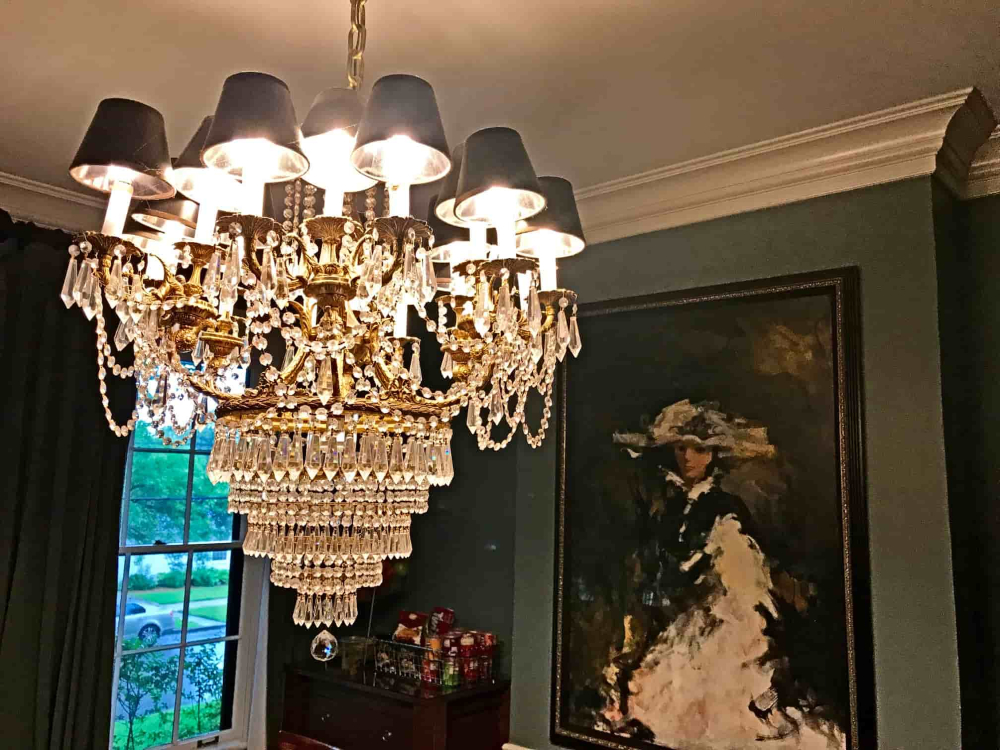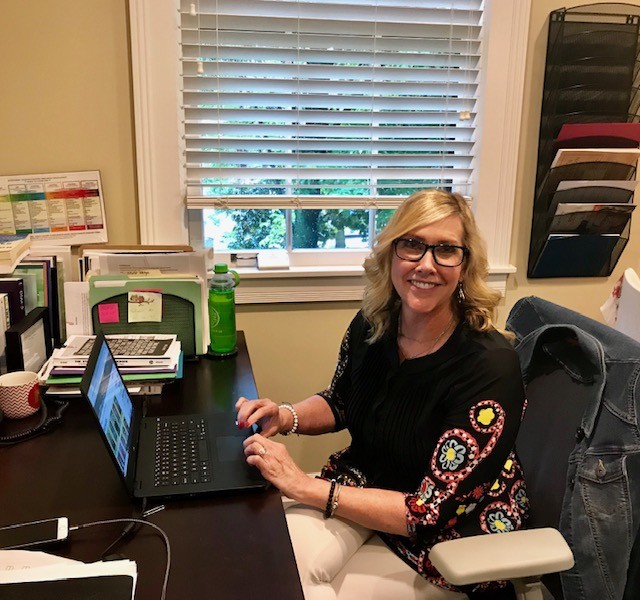Marriage & Family Therapy in Rehab – Limelight Interview

Clinical Director, Lynnel Brewster has a lot of initials after her name. And with 24 years of experience, she has worked in hospital and home settings, residential addiction treatment centers and private practice. Lynnel is a registered nurse and a licensed professional counselor. She also has her limited license in marriage and family therapy, something she finds valuable in addiction treatment. At the beginning of her career, Lynnel served as a missionary in Indonesia translating the bible and providing medical care. She says this experience prepared her to go into nursing. And Lynnel can lull a roomful of anxious clients with auricular acupuncture.
She has a big smile and a big heart. We sit down to talk with Lynnel in the Carriage House. It’s a short walk across the porch from Sanford House at Cherry Street for Women where she has her office.
From the time I was a little girl, I have looked for one-on-one connections. It led me to nursing. And from there, addiction therapy. Lynnel Brewster

Lynnel in her office – Sanford House at Cherry Street for Women
Limelight: 13 Questions for Clinical Director, Lynnel Brewster, RN, LPC, LLMFT, CCTP, AcuDetox Specialist
1. What is your primary focus? Your style?
I try to figure out what is best for each client. It is important to build rapport – for them to be able to talk to me. To trust me. I am an empathetic listener, and I do meet the client where they are at the time we begin. But, they have to be willing to open up. Now, as Clinical Director, I also direct programming and monitor our staff of Clinical Therapists.
2. Do you have a treatment philosophy?
There must be honesty. Vulnerability. I work with the clients of Sanford and sometimes there is a resistance to taking the risk. I encourage our clients to dig deeper than the surface, to stay open. And when they do, we can get more accomplished. Without self-reflection there is a higher likelihood of relapse.
3. You are obviously suited for it, but why did you become a therapist?
From the time I was a little girl, I have wanted to be a nurse. But when i became an RN, I realized it did not allow for enough one-on-one connection. I want people to share with me – to listen with compassion.
4. How does your marriage and family therapy background help in addiction treatment?
I always look for the areas of resistance to change and recovery. Oftentimes families, spouses, loved ones have no desire to change or understand the disease of addiction. They wonder, Why are you doing this to us? Sometimes the family members are the hidden victims of addiction.
5. What is the key to recovery success?
Recovery is not just “not using”. Recovery is also being free of resentment and anger. Living a life of purpose, identity and joy. The key to early recovery is structure and layers of accountability. But as time goes on things might change – we are not silos – our needs change. We need to shake it up so life and recovery is not boring.
6. Is boredom a pitfall? What else challenges long term recovery?
Boredom is definitely a road block to recovery. So is low self-esteem. And complacency – as I said, keeping things fresh, interesting and current is important.
7. What would you say is the “fun” part of your job?
I love coming to work every day. Love being with the men and women of Sanford. Getting to know them, seeing how they band together and form friendships. I also really enjoy the people I work with. We can’t be serious all the time. I love the humor and the laughter we all share.
8. And the most challenging part?
Denial. When one of our clients doesn’t want to invest in the process or is resistant to positive change. With motivational interviewing we can usually get through, but it works better when a client is ready to be open and share. I want them to feel safe with me.
9. What are you reading these days?
(Laughs…) A LOT of recovery books. I also find a quiet time every morning to read the bible. Morning devotionals fill my tank and get me into a good mindset for the day. I like psychological thrillers too – but at the moment bible and recovery are my go-to books.
10. What is your favorite journey?
I’m on it right now. I am comfortable in my own skin, my children are grown. I can spend time with my grandchildren. And I am happy in my work life. It’s really nice to appreciate this point in my life …
11. You are happy in your work – what makes Sanford unique?
First of all, Sanford Addiction Treatment Centers is gender specific. It’s the first time in my history I have not worked in a co-ed environment and I think it is vital – especially to women in treatment. Also, Sanford’s approach to treatment is personalized. There is not the usual bureaucracy I’ve experienced elsewhere. And as I said before, I really enjoy the dedication and talent of my colleagues.
12. What constitutes a “good day” at work?
Believe it or not, a good day doesn’t have to mean we are all happy all the time. In fact, a good day might include an emotional session where a women is particularly courageous. Where I can go home and reflect, what we did today is going to mean something to this person. My job is not to make my clients feel warm and fuzzy all the time. We dig deep, but I want them to feel safe during the process.
13. Do you have a motto?
Yes – something my dad used to say and it stuck. Treat people the way you want to be treated. It works in therapy too…
Thanks Lynnel. SH


